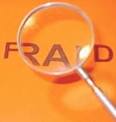Fraud Bad Opinions Can Get You In As Much Trouble As Bad Facts

Fraud: Bad Opinions Can Get You in as Much Trouble as Bad Facts by Sam Burke

In Texas, a fraud claim must be based on a false representation. Courts have often repeated the principal that statements of pure opinion cannot be false representations. Recently, the Texas Supreme Court repeated this rule in the case of Italian Cowboy Partners, Ltd. v. Prudential Ins., 341 S.W.3d 323 (Tex. 2011). But, in Italian Cowboy, like most fraud cases involving opinions, the Texas Supreme Court went on to discuss the exceptions, which arguably swallow the rule.
While it may appear at first blush that opinions won’t often create liability for fraud, the safe harbor for opinion is pretty cramped. The first indication that opinions received little protection is that the general rule protects “pure opinions”. The word “pure” is a close kin to works like “always” and “never”, and most of us have come to realize that “always” or “never” almost always never happen. In the real world, purity is not so much a condition we encounter but an ideal we might seek. Like perfection, it is a pursuit, not something that is attainable.
The next problem with this general rule is that sometimes it’s difficult to determine whether a statement is a statement of opinion or fact. Webster’s definition of opinion is “a belief stronger than an impression and less strong than positive knowledge.” Most of the time, Courts appear to follow this definition of opinion as is illustrated by the fact that courts group opinion statements with judgments, probabilities, and expectations. See, Ryan v. Collins, 496 S.W.2nd 205, 210, 1973 Tex. App. LEXIS 2888 Tex. Civ. App. Tyler 1973 (in order to constitute actionable fraud [a] representation … must concern a material fact as distinguished from a mere matter of opinion, judgment, probability or expectation). By putting opinions in a group with judgments, probabilities, and expectations, courts appear to be emphasizing that statements made about matters that fall short of positive knowledge are not actionable. However, as stated above, the exceptions make the rule almost meaningless.
The major exceptions to the rule that opinions cannot be false representations are as follows: 1) opinions the speaker knows to be false; 2) opinions mixed with false statements of fact; 3) and opinions based on special knowledge. The first exception presents the most difficulty for defendants. In order to avoid the expense of trial, the accused is put in the position having to prove that although their opinion was wrong (or else there would have been no lawsuit) you didn’t know it at the time. This situation is similar to having to prove a negative; it’s difficult if not impossible to do.
The second exception, if fairly self-explanatory and should be unnecessary. When you express an opinion that is mixed with statements of fact that are false, that fact that you were expressing an opinion about the false facts does provide you with any protection.
The final major exception, is opinions based on special knowledge. In this context, special knowledge means knowledge of specific facts that underlie the false opinion. However, courts appear to often confuse special knowledge with special expertise such as medical, legal, or engineering expertise. In practice, this exception often makes it difficult for those accused of fraud to avoid a trial or liability where they are significantly more sophisticated than the other party to the transaction. The greater the difference in the parties sophistication; the greater the problem for defendant.
As I hope this article has shown, bad opinions can cause as much trouble as bad facts. In order to reduce the chances of being sued for fraud in the event opinions turn out to be wrong, I have three suggestions. First, make it clear when you are expressing an opinion. You can do with phrases such as “in my opinion” or “I believe”. Second, make sure you have your facts straight. Especially when dealing with real estate or stock, false statements of fact can create liability even if you honestly believed them at the time. If you opinions are mixed with or based on bad facts, your opinions won’t receive much, if any, protection from our courts. Finally, as much as possible, when you are in a major transaction, give the party you are dealing with access to the same information you have, give them the opportunity to review it for themselves, and encourage them to look at it themselves. Giving people access to the information you used to form your opinions, gives you the best chance to avoid liability if your opinions turn out to be wrong.
Samuel B. Burke is board certified in Civil Trial Law by the Texas Board of Legal Specialization. Sam can be reached at [email protected] and www.dentonlaw.com.

